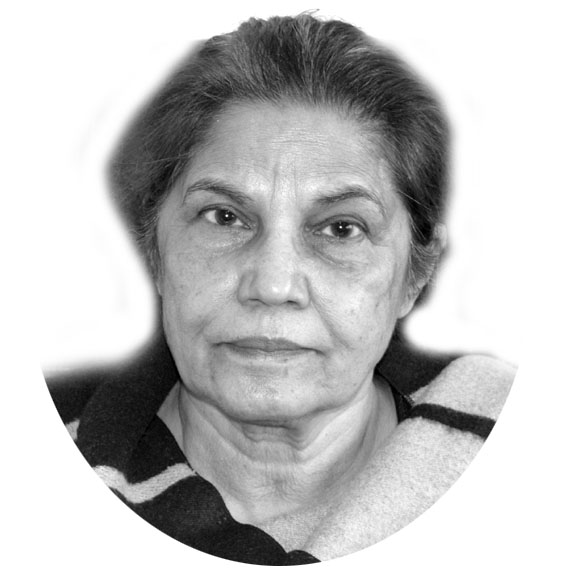Fauzia Nasreen
HUMAN resource development is at the heart of the Commission on Science and Technology for Sustainable Development in the South (COMSATS)’s vision of creating progressive, developed and self-sustaining societies within its member states. The overarching principle is to empower the people through imparting education and knowledge in keeping with their national aspirations. At the same time the aim is to collectively help build the capacities of member states in meeting the challenges of development and in harnessing the opportunities through mutual collaboration and support. The Organization was conceived in 1994 with the aim of promoting science and technology in the developing world and for building nations capable of providing good quality of life to their populations. The primary focus is on enhancing indigenous capacities in science and technology through such initiatives as pooling of scientific infrastructure and human resources in the South as well as tapping the expertise available in the North. It was agreed, that to achieve the objectives outlined at the Foundation meeting, leadership and support will be extended for cooperative schemes in education, training and research. This included the setting up of programmes of scholarships and research at the scientific Centres of Excellence in the South.
With the above in view, COMSATS has focused on two tracks: awarding of scholarships offered by the Network of Centres of Excellence; and those offered by COMSATS’ partner institutions such as ISESCO, TWAS, ICTP and others. These openings constitute an important avenue for the youth of COMSATS’ fraternity for enhancing their knowledge, skills, research and development prospects. Since science and technology for sustainable development is the core objective of the Organization, it is envisioned that through exchanges and collaboration in ST&I socio-economic development will be fostered thereby creating peaceful and cohesive societies. The training workshops and programmes organized with the assistance of the member countries have also manifestly contributed towards the development of COMSATS’ human resource. Since its establishment, the Organization’s activities have revolved around areas that are now well defined in the 2030 Global Agenda for Development and in particular the Sustainable Development Goals (SDGs). The R&D collaborations that take place within the framework of the International Research Thematic Groups (ITRGs) and the Network of Scientific Centres of Excellence provide solid platforms for joint R&D in such fields as climate change and environment, biotechnology, food security and agriculture, information and communication technology. These pursuits are proving to be catalyst in stimulating growth of experts in diverse scientific and technological fields.
The journey in building COMSATS’ human resource would not have been possible without the support of the member countries and scientific institutions. Some of the leading offers made towards this end include 100 post-graduate scholarships offered by COMSATS’ University for students and faculty from the member states, five PhD scholarships by Al-Farabi Kazakhstan National University, five Fellowships offered by the National Research Centre of Egypt, five post-Doctoral Fellowship by the International Centre for Chemical and Biological Studies, one post-Doctoral Fellowship by the Bangladesh Council of Scientific and Industrial Research and a good number of scholarships by the International Centre for Climate and Environment Sciences of China. Roughly 60 scholarships in total have been availed by students offered mostly by COMSATS’ member states over the last 25 years or so.
Among the international institutions that have partnership with COMSATS, under the International Centre for Chemical and Biological Sciences (ICCB)-COMSATS Postdoctoral Fellowship Programme, five scholarships per year are offered. Similarly, the World Academy of Sciences (TWAS) Fellowship Programme enables students to avail of the scholarship offers. COMSATS University pursues an ongoing CUI-TWAS Fellowship Programme. Substantial number of sponsorships has been provided to COMSATS by the member states and non-member states from the North as well as for events organized for capacity building. One of the latest projects, launched in collaboration with the American Academy of Pakistan Studies relates to the setting up of the International Centre for Training and Development with the aim of training workshops by foreign experts in areas including climate change, intellectual property rights, higher education, leadership and energy policy.
Such collaborations are extremely useful in boosting the Organization’s efforts for promoting science and technology for the achievement of SDGs and sustainability in general. Those who enjoy such exposures add to the consolidation of strategic assets in terms of national development and international cooperation. Human resource development constitutes a vital pillar of nation-building and national cohesion. It also plays a significant role in ensuring human security and, therefore, security of the state as a whole. Accordingly, COMSATS accords high priority to human resource development and is desirous of, in addition to providing education and training outreach, lending support for the establishment of science and technology institutions and parks in its member states in fulfilment of the vision of the founding leaders of COMSATS. The commitment, support and patronage of the member states and the will for collective action against the challenges confronted by the South in the realm of human resource are crucial in the task undertaken by the Organization. COMSATS continues to look forward to the patronage of its member states and the scientific Centres of Excellence.
—The writer is a former Ambassador and is presently working as Advisor (SDGs) in COMSATS’ Secretariat.










